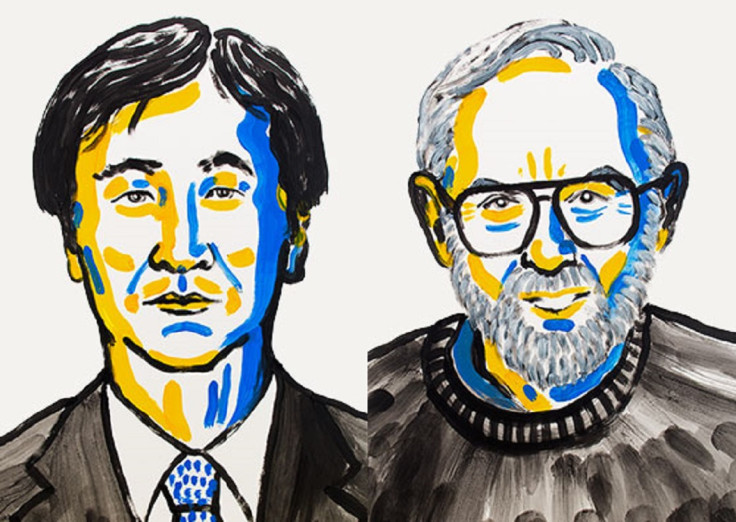Nobel Prize In Physics 2015: Takaaki Kajita and Arthur McDonald win for neutrino switch discovery

The Nobel Prize in Physics 2015 has been awarded to Japan's Takaaki Kajita and Canada's Arthur McDonald for discovering that neutrinos switch identities. The announcement was made at the Royal Swedish Academy of Sciences.
Neutrinos are elementary subatomic particles about which little is known. They are more abundant than any other particle other than photons, but interact so weakly with other matter that over 100 billion stream through every square centimetre of Earth - including our bodies - every second.
Kajita, from the University of Tokyo, Japan, presented the discovery that neutrinos from the atmosphere switched identities on their way to the Super-Kamiokande detector in Japan around 15 years ago, while McDonald, from California Institute of Technology, demonstrated that neutrinos from the sun did not disappear on their way to Earth. Instead, they arrived at the Sudbury Neutrino Observatory with a different identity.
These findings solved a long-held puzzle about why up to two thirds of the neutrinos were missing in measurements performed on Earth. Combined, the researchers had shown that the neutrinos had changed identities.
This led to the realisation that neutrinos must have some mass, regardless of how small that might be – previously it had been thought they were massless subatomic particles. This discovery changed our understanding of the workings of matter and showed the Standard Model cannot be the complete theory of fundamental particles and how they interact. For the Standard Model to work, it requires neutrinos to be massless.
Goran Hansson, secretary general of the Royal Swedish Academy of Sciences, said: "This year's prize is about changes of identity among some of the most abundant inhabitants of the universe."
A statement about the winners notes: "Several key questions about the nature of the neutrino need to be answered before new theories beyond the Standard Model can be fully developed. What are the neutrinos's masses? Why are they so lightweight? Are there more types than the three currently known? Are neutrinos their own antiparticles? Why are they so different from other elementary particles?
"The discovery that is awarded with this year's Nobel Prize in Physics has yielded crucial insights into the almost entirely hidden world of the neutrino. The experiments are continuing and intense activity is under way around the world to capture the neutrinos and examine their properties. New discoveries of the neutrinos's closely guarded secrets are expected to change our understanding of the history, structure and future fate of the universe."
© Copyright IBTimes 2025. All rights reserved.






















